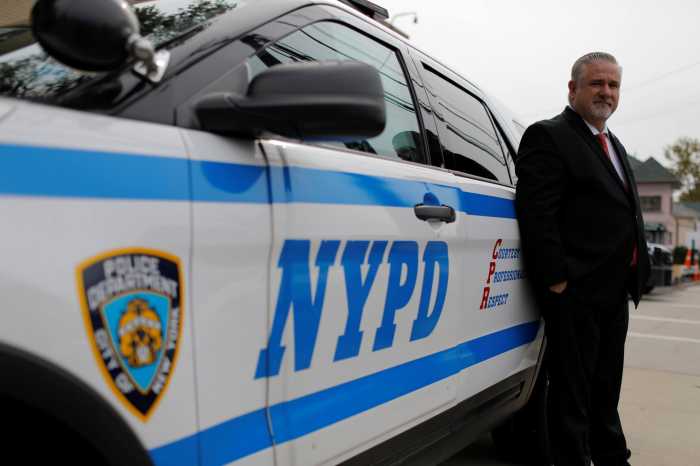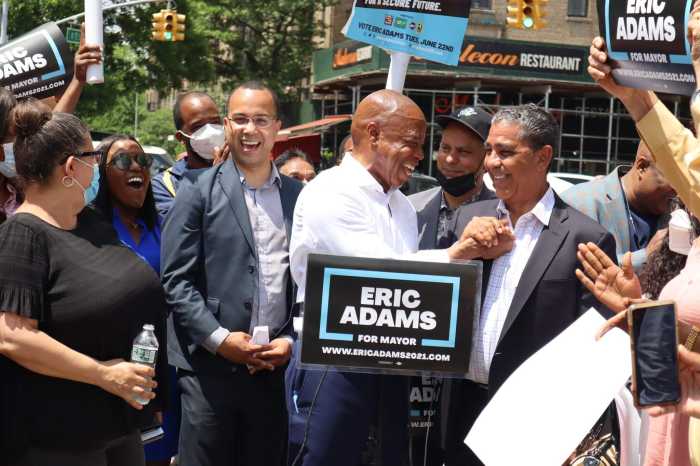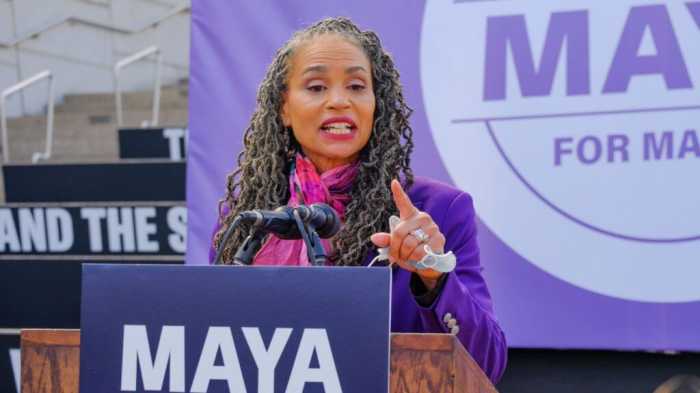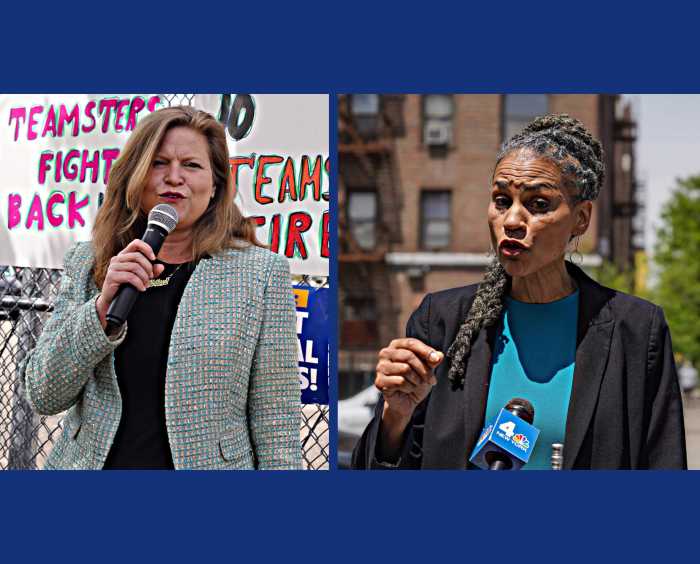Seven candidates looking to become the next chief prosecutor of Manhattan committed to various criminal justice reforms in a questionnaire put forth two groups representing criminal defense attorneys.
The New York State Association of Criminal Defense Lawyers and National Association of Criminal Defense Lawyers published on June 16 the results of their questionnaire sent to the candidates focused on how each prospective district attorney would focus on trial penalty in cases before their office.
The DA candidates who submitted answered questionnaires include six Democrats on the ballot in the June 22 primary: Tahanie Aboushi, Alvin Bragg, Lucy Lang, Eliza Orlins, Dan Quart and Tali Farhadian Weinstein.
All of the Democratic candidates, including those that did not complete the questionnaire (Liz Crotty, Diana Florence), had previously expressed opposition to the “trial tax,” which is actually a technique that prosecutors use to convince defendants to plead guilty to lesser charges after being threatened with higher counts.
In responding to the questionnaire, the associations reported, the respondents said they each opposed mandatory minimum sentences established under the state penal code. However, just four of the candidates — Aboushi, Orlins, Quart and Farhadian Weinstein — said they would actively work with the state legislature to have the minimum sentences repealed.
Bragg, on the other hand, said the issue with mandatory minimums is far more complicated than merely repealing them.
“Unfortunately, although I have long publicly opposed mandatory minimums and would otherwise use these laws only in the most extraordinary circumstances,” he wrote, “New York state law requires DAs to use mandatory minimums in felony cases, as the Court of Appeals has held. This means that DAs have no discretion in opposing sentencing enhancements for ‘second felony offenders’ and ‘persistent violent felony offenders’ under New York Penal Law Article 70.”
Lang, on the other hand, said she would “have a policy of taking mandatory minimums into consideration pre-indictment, and making the decision to present to the grand jury accordingly.”
The slate of candidates also pledged to have a Conviction Integrity Unit to look not only at potential wrongful convictions, but also cases in which sentences may have been excessive.
“The CIU will pursue multiple remedies, ranging from requests for new trials followed by dismissal, to reduced sentencing where appropriate if there is an available legal mechanism,” said Aboushi.
Quart, an assemblyman, said he would seek to work with the state legislature to reform penal law Section 440 “to allow greater flexibility to individual defendants claiming innocence and/or that their conviction was improperly secured.”
The candidates also sought to outline how they would work to eliminate racial disparities in sentencing.
Orlins said she would use her Conviction Review Unit, if elected, to “build automatic flags into our system, so we know when it appears that charges or sentence recommendations in a particular case depart from the office norm.” She would also seek “stringent reviews” on what the office does not charge.
Farhadian Weinstein said she would seek a partnership with outside organizations to seek equal justice under the law.
“I am committed to doing the data collection, monitoring and studies necessary to eliminate racial and unacceptable disparities in charging and sentencing,” she wrote. “To this end, I will partner with outside organizations to review our data and will make our data on disparities publicly available.”
Read the entire questionnaire online at nacdl.org.





























